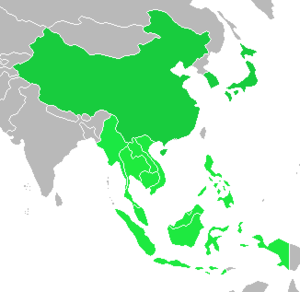"... The general consensus among this trusted cadre of experts -- myself included -- is that China's strong economic growth environment will remain vibrant for many years to come. In fact, in my many years of traveling to China, I've never seen locals as prosperous as they were during this visit. Whether it was the jam-packed restaurants or fully-booked hotels, China has fully discovered their prosperity --
domestic consumption is on the way higher, much higher ..."
From:
http://asia.investorplace.com/asia-...sting_100604-part7.html?sid=BQ3292&en=1400306
To quad:
Note the bold above. You are postulating from text book theory, and sometimes it is true, that higher salaries reduce employment; however rarely is that true if the salaries are increased ONLY at the lowest income / subsistence level people. (China increased only the minimum wage.) Again, like the above facts in bold, you are ignoring the FACTS which I cited, such as those about the actual real world experience of Bolsa Familia in Brazil with aid to the extremely poor or Helicopter Ben's observations as to how to most efficiently stimulate economic growth (least cost for the most expansion).
When it comes to something as complex as human behavior and economics, your text book theory ain't worth a hill of beans if it is contradicted by real world facts.
Quad: " The US produces way too much food for people to go hungry, depression or no. "
Again look at the facts. Even now many are gong to bed hungry in the USA - How much food the US can produce is not the point. The point is how much can the hungry buy!
The depression I am predicting follows a collapse of the dollar. Then much of the US food production will be sold, to those who can pay for it, and they are not necessarily Americans then. With dollar collapsed, and China booming, who do you think will bid higher for Canadian wheat? Who will be able to afford the oil they need to run their economy on? The US will be selling food to China, just to buy the oil it needs to keep alive its badly designed (for the high energy cost era) suburban infrastructure society.
Silly programs like the corn to alcohol will of course be scrapped to make more efficient use of the farm land, to earn the badly needed "hard currency" like the Chinese yuan, for which oil is sold when there are even more printing press dollars existing with little value. Very inefficient farm programs, like feed lot cattle fattening will be a thing of the past.


